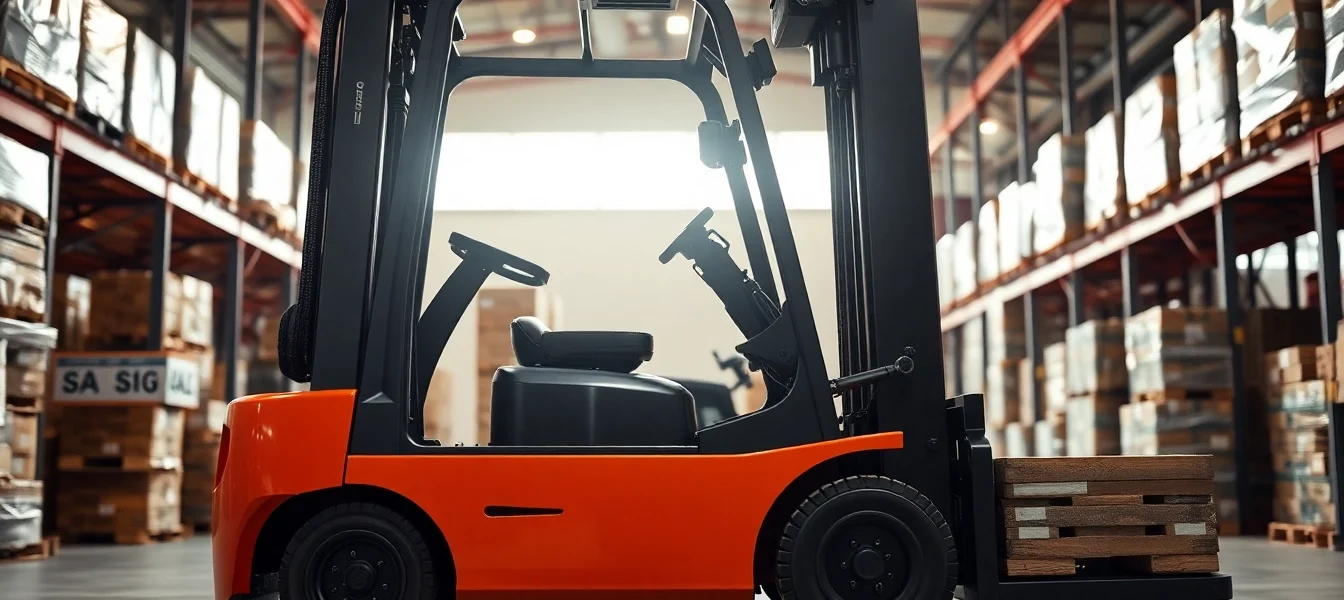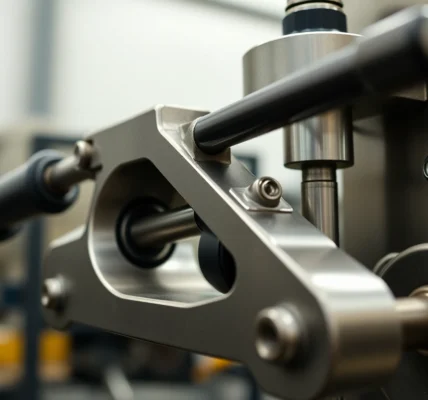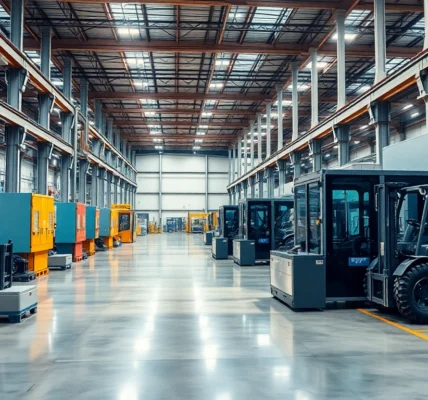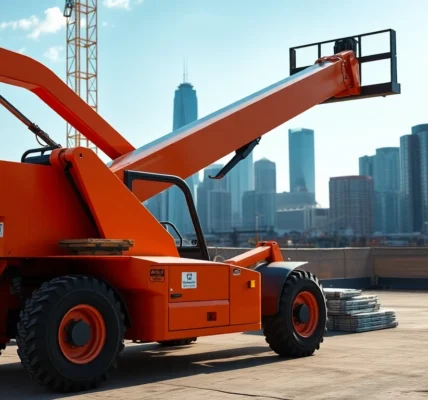Secure and Cost-Effective Forklift Rental Solutions for Your Business Growth
Maximizing Business Efficiency with Forklift Rental: A Complete Guide
In today’s fast-paced economy, the ability to efficiently move, lift, and handle heavy loads is fundamental to maintaining productivity across various industries. From warehousing and logistics to construction and manufacturing, forklift equipment plays a pivotal role. However, investing in purchasing new machinery can often be a significant capital expense, especially for small to medium-sized enterprises or for projects requiring temporary solutions.
Fortunately, forklift rental offers a flexible, cost-effective alternative that enables businesses to access top-tier lifting equipment without the burden of ownership. This comprehensive guide explores the various facets of forklift rental, helping you understand its benefits, how to select the right provider, best practices for management, and future advancements transforming the industry.
Understanding the Benefits of Forklift Rental for Your Business
Cost Savings and Flexibility with Short and Long-Term Rentals
One of the primary advantages of opting for forklift rental is the significant cost savings it offers. Instead of tying up capital in purchasing and maintaining equipment, companies can allocate resources more strategically. Rental agreements often require a lower upfront investment, and monthly or weekly payments can be tailored to project needs. This flexibility allows businesses to adapt quickly to fluctuating demand, scaling their fleet up or down without the complications of fixed assets.
For example, a logistics company might require additional forklifts during peak seasons. Short-term rentals—ranging from a few days to several months—enable them to meet operational goals without long-term commitments. Conversely, long-term rentals, sometimes spanning several years, provide stable, predictable expenses and often include maintenance and support services, further reducing operational costs.
According to industry insights, rental costs can start as low as £65+ VAT per week, depending on the forklift’s model and rental duration. This affordability makes forklift hire an attractive proposition for diverse operational needs.
Choosing the Right Forklift for Your Operational Needs
Selecting the appropriate forklift is crucial to optimize efficiency and safety. Consider factors such as load capacity, lifting height, travel speed, and power source. For instance, electric forklifts are ideal for indoor use due to their zero emissions and quieter operation, while diesel or LPG models are more suited for outdoor or heavy-duty applications.
Additionally, the environment, storage space, and intended workload significantly influence your choice. Narrow aisle warehouses benefit from compact models, whereas outdoor construction sites may require robust, rugged machinery capable of handling uneven terrains.
Leading rental providers offer a wide range of models, including reach trucks, counterbalance forklifts, telehandlers, and pallet trucks, among others. Consulting with industry experts or rental specialists can help you identify the best fit—saving time, reducing costs, and preventing equipment mishandling.
Improving Safety Standards and Compliance
Safety should always be a priority in material handling operations. Renting from reputable providers ensures access to well-maintained, compliant equipment that meets all relevant safety standards. Properly selected forklifts reduce the risk of accidents, injuries, and operational downtime.
Additionally, many rental companies offer comprehensive operator training and safety courses, crucial for ensuring adherence to health and safety regulations like the UK’s LOLER (Lifting Operations and Lifting Equipment Regulations) and PUWER (Provision and Use of Work Equipment Regulations). Regular maintenance and inspection, often included in rental agreements, further enhance safety by minimizing mechanical failures.
Implementing strict safety protocols, providing adequate training, and maintaining routine checks are essential best practices that advance your workplace safety culture.
How to Select a Reliable Forklift Rental Provider
Factors to Consider: Reputation, Fleet Quality, and Support
Choosing the right rental partner is foundational to ensuring operational success. Start by assessing the provider’s reputation within the industry—reviews, testimonials, and industry accreditations give insight into their reliability and service quality. A well-established provider typically maintains a modern, well-maintained fleet, offering a broad selection of models suited for different applications.
Support services are equally important. A dependable provider offers comprehensive after-sales support, including maintenance, emergency repairs, and technical assistance. Look for providers that prioritize safety and compliance, ensuring their equipment adheres to all UK standards and regulations.
For example, companies such as The Forklift Company or Toyota Material Handling UK offer extensive fleets backed by expert support, making them excellent options for diverse business needs.
Assessing Rental Terms and Pricing Structures
Transparent pricing and flexible rental terms help prevent unexpected costs. When evaluating proposals, consider rental duration, included services, and penalty clauses. Some providers offer all-inclusive packages that cover maintenance and operator training, which can simplify budgeting and reduce unforeseen expenses.
Always compare hourly, daily, weekly, and long-term rates, and inquire about discounts for extended durations. For instance, leasing for several years might include preferential pricing and guaranteed equipment availability.
Drafting clear rental agreements that specify terms, conditions, and responsibilities ensures mutual understanding and reduces disputes during the contract period.
Customer Service and After-Sales Support
Excellent customer service is a hallmark of reliable rental companies. Responsive communication, quick problem resolution, and proactive maintenance significantly impact operational uptime. A provider that offers 24/7 support, on-site assistance, and training demonstrates commitment to client success.
Prioritize companies with a proven track record of high customer satisfaction, which can often be verified through client testimonials or industry ratings. This ensures your rental experience is smooth, efficient, and aligned with your business objectives.
Best Practices for Managing Forklift Rentals Effectively
Scheduling, Maintenance, and Operator Training
Effective management of forklift rentals begins with meticulous scheduling. Plan equipment use in advance based on project timelines to avoid delays. Regular maintenance, whether scheduled by the provider or performed in-house, is essential for safety and longevity. Many rental companies include maintenance in their packages, simplifying operational oversight.
Operator training is another critical component. Properly trained operators minimize accidents, prolong equipment lifespan, and improve productivity. Invest in comprehensive training programs or utilize provider-based courses to ensure competence in operating, safety procedures, and emergency protocols.
Tracking Rental Usage and Optimizing Costs
Implementing a system to monitor equipment usage helps identify underutilized assets and opportunities for cost savings. Use digital tools or fleet management software to track hours, maintenance schedules, and performance metrics. Analyzing these data points allows for more accurate budgeting and informs future procurement or rental decisions.
Additionally, consolidating rental needs through a single provider often results in better pricing and streamlined management.
Ensuring Safety and Regulatory Compliance
Continuous adherence to safety standards is vital. Establish strict protocols, conduct regular safety audits, and ensure all operators are certified. Keep comprehensive records of inspections, maintenance, and training to support compliance with UK regulations. Regularly update safety procedures to incorporate new technologies and best practices.
Investing in safety not only protects your workforce but also shields your business from legal liabilities.
Case Studies: Successful Forklift Rental Implementations
Warehouse Logistics Improvement
A regional distribution center faced seasonal peaks that strained their existing fleet. Through strategic forklift rentals, they scaled operations efficiently, reducing order fulfillment times by 25%. They utilized electric forklifts for indoor logistics and diesel models for outdoor drayage, optimizing operational costs and safety.
The rental provider’s support included operator training and maintenance, ensuring smooth throughput without significant capital expenditure.
Construction Site Efficiency
A construction firm needed rugged, versatile machinery to handle materials on outdoor sites. By renting heavy-duty telehandlers and counterbalance forklifts, project timelines improved, and accident rates decreased. The flexibility of short-term rentals allowed them to adapt to changing project scopes.
Regular servicing and on-site support minimized delays related to equipment failure.
Event and Industrial Projects
An industrial event organizer required equipment for setup and teardown over a short period. The rental agreement provided immediate access, tailored to tight schedules. Safe, reliable lifting equipment contributed to seamless logistics, demonstrating the benefits of flexible rentals for time-sensitive projects.
Future Trends in Forklift Rental and Material Handling
Emerging Technologies and Equipment Innovations
The future of forklift rental is increasingly driven by technological advancements. Electric and hybrid models are replacing traditional fossil-fuel-powered machinery, aligning with sustainability goals. Autonomous forklifts and smart sensors are beginning to enter the market, promising enhanced safety, precision, and efficiency.
Rental companies are investing in these innovations to offer clients cutting-edge solutions.
Sustainable and Eco-Friendly Rental Options
Environmental considerations are influencing industry offerings. Companies are prioritizing zero-emission electric forklifts, energy-efficient operation modes, and recyclable components. Green certifications and eco-friendly leasing programs enable clients to meet sustainability targets without significant capital outlay.
These options are increasingly appealing to organizations committed to reducing their carbon footprint.
Integration of Telemetry and IoT for Better Asset Management
The integration of telemetry systems and IoT (Internet of Things) technology allows real-time tracking of equipment performance, location, and usage data. This capacity improves operational visibility, enables predictive maintenance, and enhances asset lifespan.
By choosing rental providers that incorporate these technologies—such as Rentalift or Toyota solutions—businesses can achieve smarter, more efficient fleet management.



